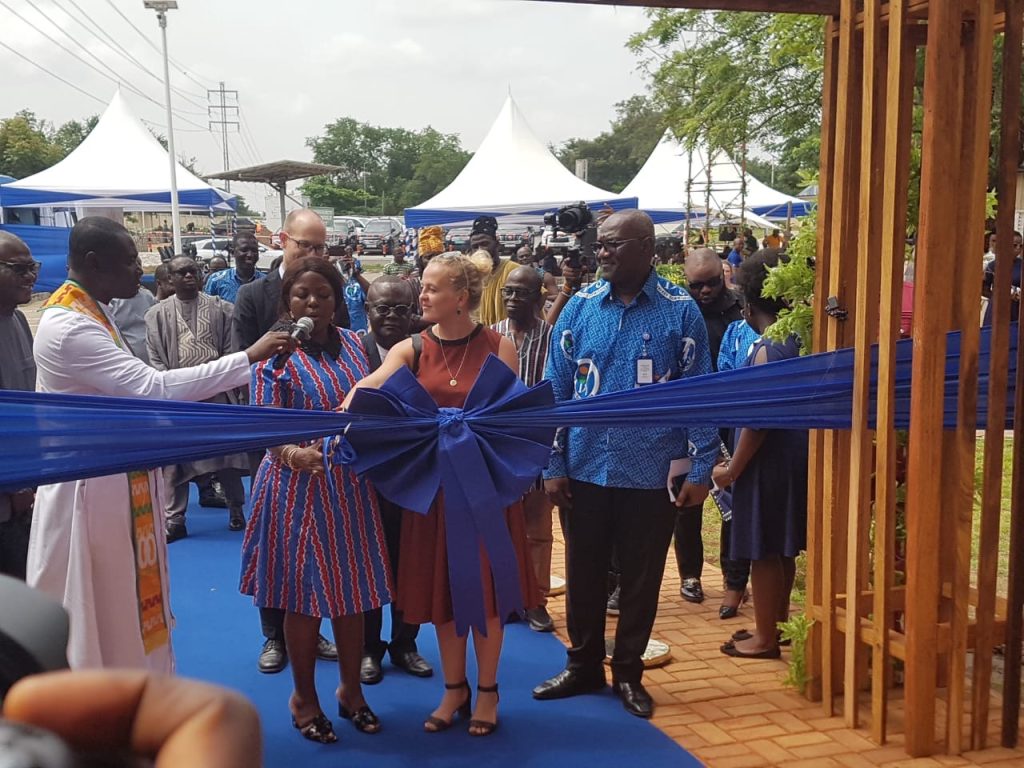By Jibril Abdul Mumuni
Accra, Nov. 12, GNA – The Energy Commission (EC) and partners have pioneered zero energy building to drive sustainable energy transition in the country.
The project was implemented by the German Development Cooperation (GIZ) and is stationed at the EC’s Head office in Accra.
It becomes the pacesetter in promoting green buildings in the country, underscoring Ghana’s commitment towards global climate effort and Nationally Determined Contribution (NDC) on Climate Action.
The green building relies on energy generated on-site by solar PV, with a potential of generating 88 percent of its energy needs.
Thus, reducing environmental impact by 50 per cent, which is quite lower than standard buildings.
The facilities in the building include two conference rooms, a meeting room, a courtyard, and staff kitchenettes.
It will host some offices of the Energy Commission and an academy to train professionals.
Mrs. Lydia Seyram Alhassan, Minister for Water and Sanitation, speaking at the inauguration, said the building was a bold statement to Ghana’s commitment to climate stewardship and environmental sustainability.
“This nearly zero-energy building is truly ground-breaking for many reasons. It embodies our national commitment to addressing climate change and reducing carbon emissions,” she said.
She said by generating as much energy as it consumes, this facility exemplifies the core principles of energy efficiency and resource conservation that the country’s energy policy advocates.
“It serves as a living testament to integrating sustainable practices into every aspect of our development,” she added.
The building, she noted, would serve as a precedent and standard for future development in the areas of construction and environmental sustainability across the country and beyond.
The Minister was delighted to learn that the building would serve as an Energy Academy and a dynamic hub of knowledge, poised to nurture future energy professionals and pioneers.

She urged the Commission to go beyond the theoretical foundations taught in traditional academic settings and to seize the opportunity to explore innovative technologies, engage in pioneering research, and develop solutions that would define the future of energy.
Mrs Alhassan said through the energy building, the EC would transcend its role as an academic resource and become a true catalyst for transformative change, driving the sustainable energy solutions the world needs.
Mr Daniel Krull, German Ambassador to Ghana, said his country’s decision to support the project stemmed from the commitment to help Ghana achieve carbon neutrality (CO2) by 2070.
He said the building and construction industry would play a major role in promoting efforts to achieve Ghana’s CO2 neutrality.
The Ambassador emphasised that the building was a testament to strong partnerships between countries towards achieving a greener and better future.
Mr. Oscar Amonoo-Neize, Executive Secretary for the Energy Commission, said through the integration of cutting-edge renewable technologies and energy-saving practices, this building would consume only as much energy as it generated.
He said it stood as a testament to the potential of sustainable energy practices to transform the way spaces and buildings are designed, constructed, and operated in the country.
GNA